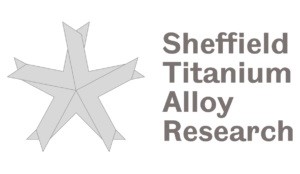

Researchers from the Sheffield Titanium Alloy Research (STAR) group joined hands with ECKART GmbH, Schluechtern, Germany, to convert surplus aluminium alloy powders from atomisation into sheet material in two solid-state steps for aerospace use. The STAR group is part of the University of Sheffield. The project was led by Dr Simon Graham, a research associate at Sheffield University.

The research aimed to transform excess aluminium alloy powders from atomisation into sheet material in two solid-state processes using field-aided sintering technology (FAST) and hot rolling. The A20X alloy powder utilised by the researchers came from Eckart.
The as-atomised particle size range is frequently disregarded as a problem, although Metal additive manufacturing (AM) processes are typically advertised as having lower material waste than traditional metallurgy. To make the AM market cost-effective and satisfy sustainability goals, other technologies must be used to transform these surplus powders into valuable goods. The cornerstone of this research is informed by this essential element.
Field-assisted sintering technology can offer an alternate solid-state processing approach to combine these extra powders into billets for further processing. By making it possible to create valuable goods from this feedstock, the supply chain for additive manufacturing is made more sustainable.

The project's results revealed that it was possible to treat excess alloy powders to create sheet material with good mechanical characteristics. There are apparent economic repercussions even though the long-term benefits cannot yet be measured. These financial advantages include possible decreases in powder costs for additive manufacturing and new income sources for atomisers.
This idea goes one step further and combines FAST with hot rolling to transform excess aluminium alloy powders from atomisation into sheet material in two solid-state processes. The powder may be successfully mixed using FAST to create completely dense billets that are afterwards hot rolled into sheets. Tensile tests performed on this project's product found that the qualities were equivalent to those of traditional materials utilised in aerospace applications.
According to the study, FAST can quickly consolidate aluminium alloy powders with a wide variety of particle sizes, including A20X, into completely dense materials. The 80 mm diameter A20X FAST that resulted from this process were also successfully hot rolled from a 15 mm thick sheet to a 2 mm sheet, albeit more optimisation is needed to avoid edge faults in the sheet.
Under the same circumstances, hot rolling was also done on some ordinary cast A20X material with the exact initial dimensions. Tensile tests revealed that the FAST material, both before and after the heat treatment, displayed characteristics that were equivalent to those of the cast and other types of aluminium sheets used in aerospace applications.



Responses






